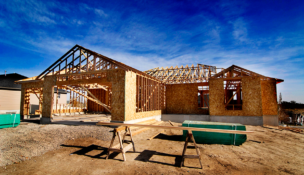
Oak Valley Homeowners Association President Mac Haddow is fighting the Prince William Digital Gateway. Photo by Will Schermerhorn

Oak Valley Homeowners Association President Mac Haddow is fighting the Prince William Digital Gateway. Photo by Will Schermerhorn
Digital Gateway opponents score legal win
Chris Suarez //September 29, 2025//
Prince William County residents who sued to block what would be the world’s largest data center complex have prevailed in one of their cases, potentially upending the controversial project.
Developers of the Prince William Digital Gateway proposed to build 23 million square feet of data centers in the county, projecting a windfall of $500 million in local tax revenue over the next two decades.
Since supervisors voted in December 2023 to rezone nearly 1,800 acres near Manassas National Battlefield Park, the project has been tied up in court. Oak Valley Home-owners Association filed suit, alleging that the county failed to give adequate legal notice and details before the vote.
“There is no justification that anyone can make to allow nondisclosure agreements to keep the details away from the public about the largest land-use decision in the county’s history,” says Mac Haddow, president of the Oak Valley association. “That’s what the central focus of this dispute has been: the lack of transparency and the impacts that were hidden from us until the very last minute.”
Also at issue are prospective changes to quality of life. The concerns range from traffic impacts, noise and water pollution, preservation of a historic Civil War site and rising utility rates due to the amount of energy required for data centers.
In August, Prince William Circuit Judge Kimberly A. Irving ruled in favor of the plaintiffs and voided the rezoning decision.
County officials and lawyers for developers did not respond to questions, but the county and developers requested a stay of Irving’s ruling to keep moving the project forward.
Leadership changes on the county board give Haddow hope for the neighbors’ case, but the court’s decisions could ripple throughout the state.
Earlier this summer, an appeals court ruled in favor of the developers in a related lawsuit, dismissing a complaint that the board of supervisors failed to give due consideration to opposition posed in a 29-hour public hearing before the rezoning vote.
Haddow said the plaintiffs plan to appeal the ruling to the Supreme Court of Virginia.
Brian Buniva, a land use lawyer based in Richmond, calls the appeals court ruling an “absurd result. According to this decision, the public hearings are just a check-the-box process that is, frankly, a waste of time. The legislative body doesn’t have to consider anything. It doesn’t even have to listen.”
i


















